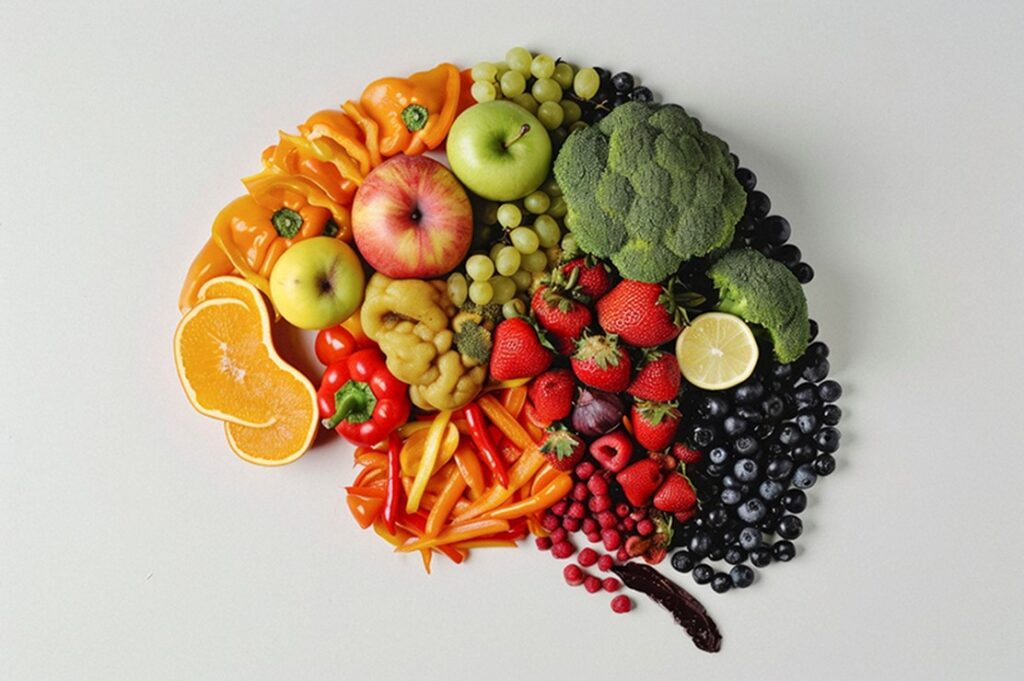When you ask a nutritionist what the healthiest type of diet is, they’ll most likely tell you to “eat the rainbow.” This means choosing fruits, vegetables, grains, and fats in various deep and vibrant colors. As an older adult, this strategy can not only help fill your macro and micronutrient needs, but it can also support brain function. Here’s what you need to know about choosing the best brain foods for older adults.
Nutrition and Cognitive Function
If you’ve ever experienced brain fog during a day of not eating well, you know that nutrition and cognitive function are intricately linked. What you eat doesn’t only impact your gut. It also affects your ability to think, energy levels, and mood.
There may not be one specific food that guards against dementia and cognitive decline, but that doesn’t mean you shouldn’t strive to eat healthy. Scientists agree that older adults should eat a balanced diet of whole and natural foods to support brain and cognitive health.

Top Foods for Brain Health
The top foods for brain health are probably ones you already know and enjoy, including:
- Dark green leafy vegetables
- Blueberries and blackberries
- Walnuts, chia seeds, and flax seeds
- Olive oil and avocado
- Salmon and other fatty fish
You’ll notice two trends in this list: vibrant fruits and vegetables and healthy fats. Walnuts, olive oil, and salmon contain omega-3 fatty acids essential for brain and joint health. Brightly colored fruits and vegetables have higher amounts of important vitamins and minerals and can help your brain, heart, and other organs function well.
Surprisingly, scientists have also found that moderate caffeine intake can help protect the brain. So you don’t have to skip your daily coffee or tea as you enter your golden years.
Tips for a Balanced Diet
As you age, you need to think about nutrition differently. Here are some tips to help you navigate meal prep and menu choices:
- Drink plenty of water
- Cut out excess sugars
- Avoid eating fried foods
- Choose healthy snacks for your home
- Reduce the amount of salt in your diet
- Buy pre-cut fresh vegetables and fruits to reduce physical strain
- Ensure you’re getting enough daily protein from dairy, seafood, meat, fish, and beans
Don’t worry if your diet isn’t as balanced as you’d like. Depending on your living situation, physical capabilities, and interests, you may be unable to cook your own meals daily. What’s important is to try to consume brain-healthy foods as often as possible.
Discovering Dedicated Memory Care
The majority of older adults worry about cognitive decline. Currently, more than 10% of people who are over 65 years of age are living with dementia. If you or a loved one are interested in exploring residential solutions dedicated to holistic memory care, there are communities for you. Elder Care Alliance provides coordinated services to support people with dementia and Alzheimer’s, including unique programming and health monitoring. Find out more about the “I’m Still Here” approach to dementia care and schedule a visit to one of our communities today.




















